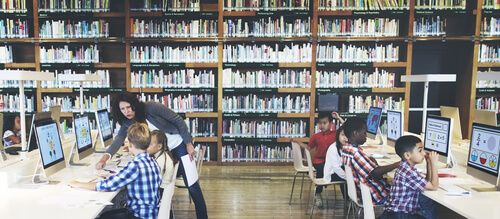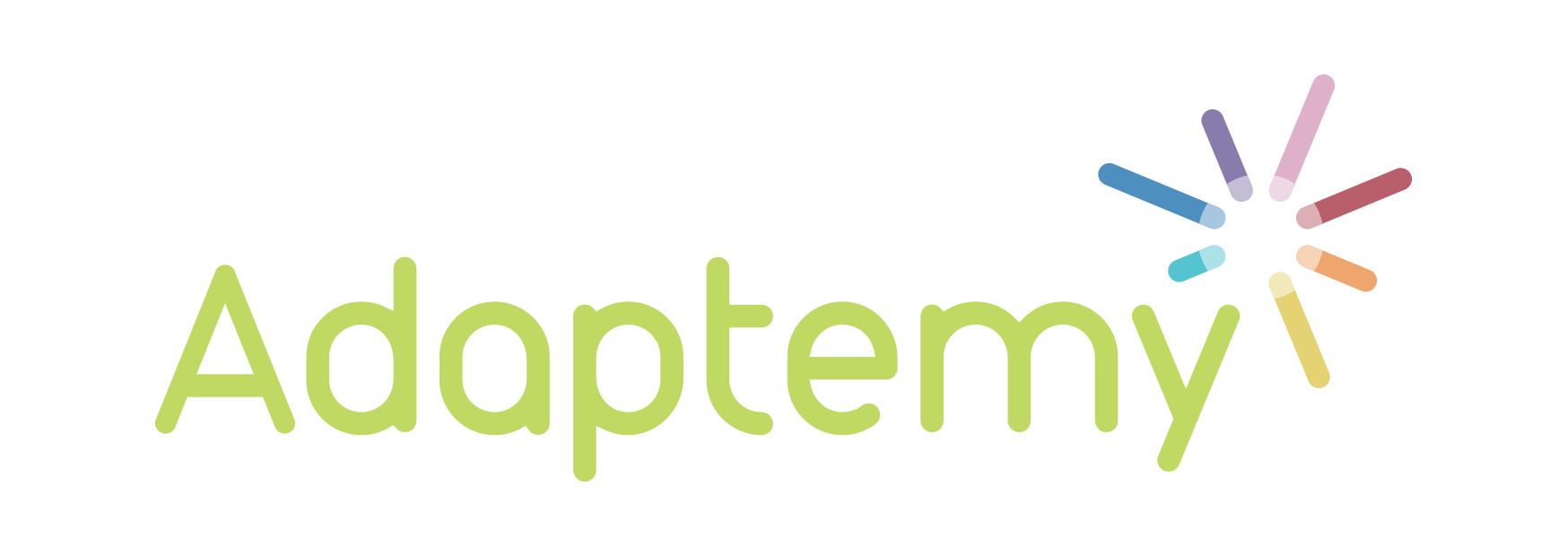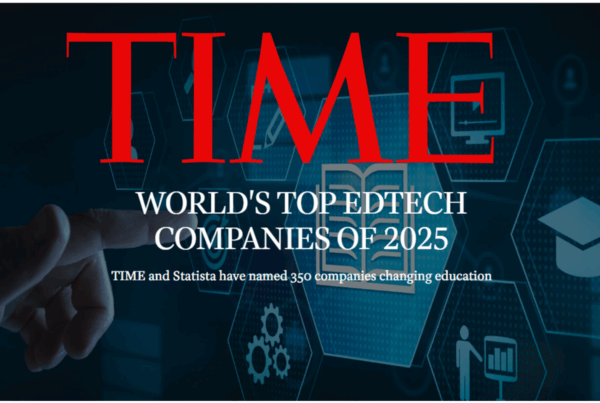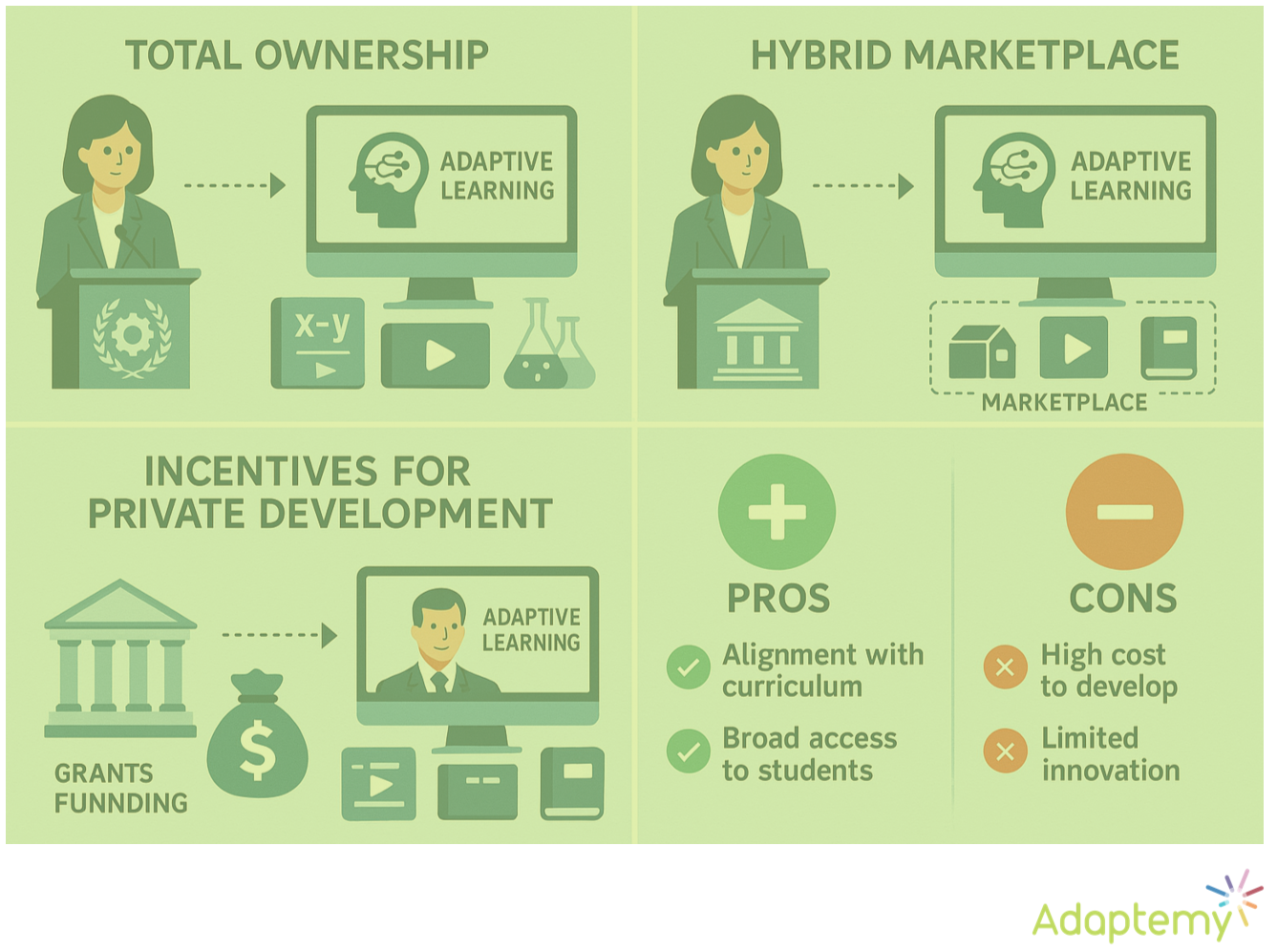
Passing an iPad over a text book and watching it augment into a 3D model. Slotting goggles on and taking part in a simulated, explosive experiment, safe in your virtual world. Educational technology offers exciting and glamourous possibilities for the classroom.
Adaptive Learning (AL) counts for just one part of the Educational Technology (edtech) spectrum; one tool among many that can support the role of the teacher and improve learning outcomes and experiences.
Like it’s visually seductive cousins (AR and VR), the potential of AL is only just being realised, and the constant research and feedback the technology demands will continue to shape its future. In this fast-moving space, we can’t be sure of its trajectory, but there are some exciting ideas emerging.
Tomorrow’s world
To understand the potential today, we need to see the ideas of the future. These are wide and varied, but my favourites involve a precedence on human interaction: how improvements in education can enable more people to work together in more useful and productive ways – in school, life and business.
In Spain for example, importance is placed on a student’s ability to collaborate. It’s acknowledged that future learners need to be digitally literate, have information finding skills and be able to collaborate with others.
Why? Because these skills are prized in the workplace. And when we consider how technology is at once connecting and separating communities – and how this is only set to continue – the ability to collaborate with others from multicultural and disciplinary backgrounds is paramount.
To build these higher-level skills, learners must establish competency in basic-level skills such as maths, language and critical thinking. A firm foundation here unlocks the door to higher-level skills (such as the ability to problem solve with others). A lack of proficiency here holds people back from this potential.
So where does Adaptive Learning fit in? Right now, this technology is a powerful enabler for students to build these basic skills within a subject level. Its instant feedback means a student (and teacher) has immediate sight of errors and progression; sophisticated curriculum mapping means a wrong answer leads to the next most useful question, not a frustrating dead end.
It’s nuanced and intelligent and gets a learner to that crucial level of proficiency quickly. Per concept, our solution is helping students achieve an 8% grade improvement per 5-minute lesson. That’s a 24% grade improvements in 2-3 revisions.
Rather than being swept along with the ability of the class (and potentially drowning), AL offers a learner the personalised experience to grow and learn at a pace and in a manner right for them.
Out of the classroom and into the workplace
Let’s use this as a springboard to discuss workplace collaboration. The future of Adaptive Learning technology might also be in group dynamics.
We learn most when we’re introduced to other ways of doing things and new sets of skills. Adaptive Learning technology quickly profiles an individual’s learning style. Matching this with others who think in alternative ways could build powerful collaborative collectives.
In terms of creativity and innovation, the latter being a driver of economic growth and, more locally, revenue, this opportunity could see businesses realise exponential increases in performance.
Back in the classroom, we’d see students paired with those who best challenge and support them. The alternative – a group hand-picked by a teacher or students flocking towards those most like themselves – is restrictive in comparison.
The reputation of education
Staying here, let’s consider for a moment the reality of education for some children, where many spend 14-15 years of their lives. For some, it is an awkward, alienating, frustrating and uncomfortable place to be. Some people become practiced at being bored or disruptive. Some never fully stretch their considerable wings. Others are peripheral, afraid, bullied.
Drowning in the tide of your peers’ ability to understand a concept more quickly than yourself is not an enjoyable, nor just, way to opt out of school or life. Adaptive Learning equips teaching experts with the tools to personalise the educational experience on a one-to-one level.
If these many years could be spent learning in a way that is most suited to the individual, we could nurture generations of people with improved confidence, competence, a greater sense of themselves and their talents and capabilities.
Heading back to the workplace, we’d have professionals far more able to make valuable contributions. And we could see AL play a role here again, monitoring performance and spotting opportunities to learn. In terms of compliance, the technology could spot when a worker forgets vital information, suggest appropriate courses and find routes to maintain or improve the role.
Adaptive learning has the power to deliver richer, more productive learning environments in the classroom and beyond. From collaboration to confidence, from innovation to compliance, the possibilities are deep, meaningful and increasingly real.
To discover what Adaptemy is doing today to realise the power of Adaptive Learning, please get in touch.




